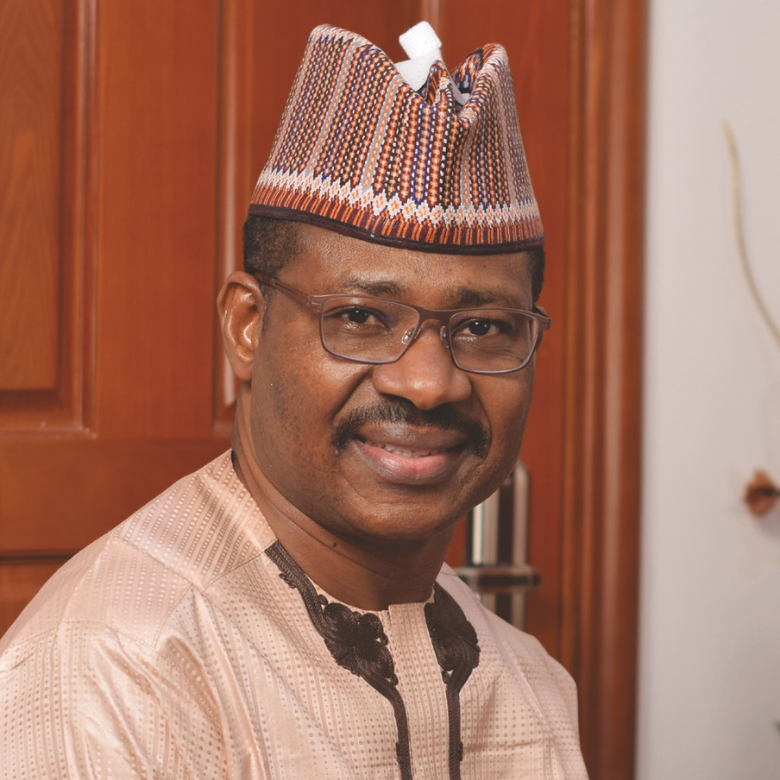My name is Faisal Shuaib, I am from Toto Local Government Area of Nasarawa state, and I am a medical doctor. I also have a master’s degree in Public Health and then a PhD, a doctorate in Public Health, and I have spent the last 30 years or so in the public health space. And I feel so honored to have had the opportunity of working very, very closely with communities, I have also had the ben- efit of being a clinician at some point in my career, an amazing journey took me to Public Health. Most of my work life in Public Health and career has been in the Polio eradication program, but also a critical part of what formed my Public Health career, and the years I spend in Bremen Alabama in the United States of America, where I would say I have actually really fine-tuned my Public Health skills and I look back at those days, and I think that was... maybe the turning point in my career. Right, so during the 2014 Ebola outbreak in Nigeria, Ebola happened in Lagos as you are well aware, so I was deployed from the National Polio Emergency Operation Center to lead the coor- dination of the Ebola outbreak in Lagos as the incident manager and the coordinator of the Ebola Emergency Operation Center, so to speak, the engine room of the Ebola response. So we had a tremendous team that ranked from the Honorable Minister of Health at that point, the Governors of the states where Ebola occurred.
It is a matter of not just one indi- vidual, but team work, you know, being able to coordinate, provide that leadership, motivate peo- ple towards a common course, right, and also having leaders at different levels, at National lev- el, at the state level, at the Local Government, Chairmen of Local Governments Areas, all work- ing together harmoniously, you know, around that objective to stop kids in Nigeria from, dy- ing from poliomyelitis, or being paralyzed, you know, that is like really magical.
That is to say Lagos, and then Rivers state, but we also had a multi-sectorial team, people from the World Health Organization, we had folks from UNICEF, from SON, but we also had a strong support of leaders such as Alhaji Aliko Dangote, Mr. Bill Gate who brought in a lot of resources, so that was one time where, you know, it was really critical that all of the leader- ship was brought together, leadership at different levels. so all of the finances, the Human Resources, the Material Resources, all working through when plan that was targeted at making sure that Ebola did not, you know, wreck the kind of havoc that it did in the other West African countries of Liberia, Guinea and Sierra Leone. So it was really a great time for all Nigerians. For the last 20 years or so, that’s what I’ve worked on the polio program.
First as a surveillance officer with the World Health Organization, I took a break, you know, I studied in the U.S, came back, and again went into the trenches as the Chief of Operations, so I moved from the state level to a national level where I became the Chief of Operations and Deputy Incidence Manager for the National Polio Emergency Operation Center. This is when poliomyelitis was declared as a disease of In- ternational Public Health Concern, so, really being in the frontline, working with states, working with Governors, working with traditional leaders, and religious leaders. Civil Society Organizations, right, to change the perspective about vaccines, move everybody towards knowing and understanding how kids are dying from poliomyelitis and getting paralyzed from poliomyelitis, so all of that work, again made it possible for Nigeria to innovate, it made it possible for Nigeria to think differently about how to address, you know, a program that was failing before 2012 when the National Polio Emergency Operation Center was established. It is a matter of not just one individual, but team work, you know, being able to coordinate, provide that leadership, motivate people towards a common course, right, and also having leaders at different levels, at National level, at the state level, at the Local Government, Chairmen of Local Governments Areas, all working together harmoni- ously, you know, around that objective to stop kids in Nigeria from, dying from poliomyelitis, or being paralyzed, you know, that is like really magical.

So this time we were to put force together and to write what is called “Takadari”, and when we were writing “Takadari”, it was then Mary Bewell called on me, that, there is this character that they created and she wants me to be one of that char- acters, I said okay, and unfortunately, I don’t know, the character was Kwaskoro. Kwaskoro happens to be a Fulani man, and he is a friend to Takadari who was the major Character.
And he would always come to Takadari’s house and, you know how the rendition and the char- acteristic of a Fulani man, all carried along, so she said I was the person perfect for that, so unfortu- nately I left for a meeting in Calabar, and before I came back they started shooting, so she brought up somebody to do it, then one day she said kai! This guy is not giving me that very character, Magaji, please come, so I came in and the first episode I acted, ah... it was... I am not praising myself, anyway, but then, it was in me. So, we went on and on, and Kwaskoro became the leading character instead of Takadari himself, and every- body was looking, where is this Kwaskoro? So, ah, ah, so it was then I started, that was, even today, Kwaskoro, who is this guy. Well, you see acting, if it is in you, it becomes a driving force, it becomes everything about you.
